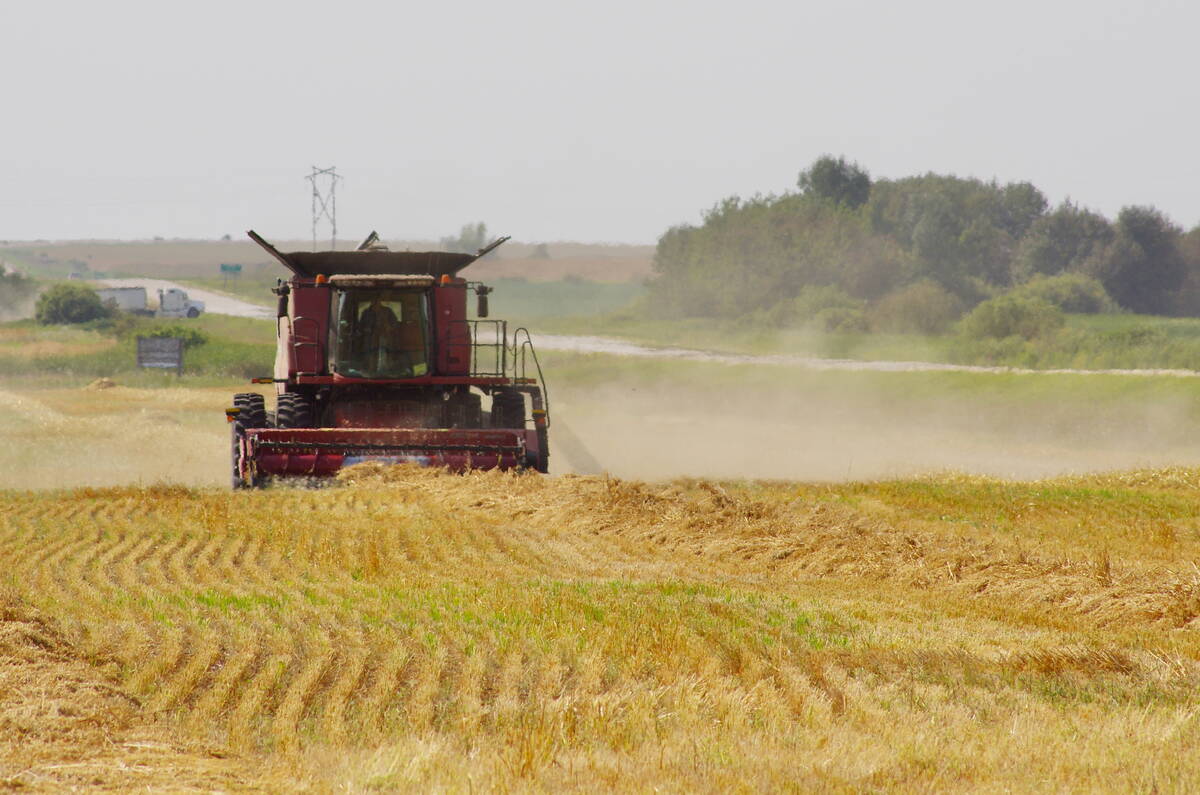An Alberta Pork Producers delegate says producers who don’t use the province’s hog marketing agency will be at a disadvantage.
That’s because at the annual meeting, corporation directors defeated a resolution calling for the Western Hog Exchange to pay for assets it will need when it splits from the public company, said Greg Meek, district two delegate.
“Those of us who don’t use the Western Hog Exchange will be competing against those who do to market our hogs. We’ll be competing against our own assets we built up,” said Meek.
Read Also

Herbicide resistance sprouts in Manitoba’s wild oats
Farmers across Manitoba this fall are gearing up for the latest salvo in what, for many, has become a longtime battle to beat out wild oats.
The Western Hog Exchange is to become a non-profit company with its own board of directors. It will buy slaughter hogs while the Alberta Pork Producers Development Corp. will take care of promotion and research. Alberta producers will be free to choose other marketing agencies but APPDC, known as universal services, will work on behalf of all producers.
Pay for use
Assets the hog exchange will gain after the split include assembly yards, about $5 million in cash and equipment like desks and computers. Meek, who notes Alberta producers helped pay for the physical assets, thinks the Western Hog Exchange should have to lease them.
“Users using that system should have to pay a fair share to market their hogs like I do marketing my own,” said Meek, who typically trucks his hogs to Maple Leaf’s plant in Winnipeg.
He belongs to a group that meets monthly to go over production records and is looking to buy feed ingredients collectively. Marketing will be the next step, he said.
Dave Price, who farms in the Acme area, made a motion at a producer meeting there last month that any APPDC assets worth more than $15,000 should be sold by public tender or through an advertised public auction. All voting producers at that meeting opted for the motion and the resolution was brought to the March 7 and 8 APPDC annual meeting.
Only about four delegates and producers voted for the resolution at the annual meeting, said Ed Schultz, general manager for APPDC. Price wasn’t surprised the resolution was lost, but thinks the Western Hog Exchange has a conflict of interest without it.
“All producers in the province of Alberta have contributed to the purchase and ownership of the
APPDC of those assets and now those are being allowed to be used and transferred at less than market value to this organization that pretty much has a single focus,” said Price, noting most of the hogs marketed through APPDC go to Fletcher’s.
For the new marketing agency to be successful, it has to establish itself as a normal business would, and avoid potential conflicts of interest, he said.
“I’m concerned that the path the board of directors has chosen doesn’t do either of those things. It also makes it less flexible for the Western Hog Exchange to make independent decisions and pursue sound business practices.”
Schultz said the resolution didn’t fly because most directors and delegates want to see strong footing in place for both universal services and the marketing agency.
“I think that rather than sell the assets, they wanted to see them continue to work on behalf of both organizations. I don’t think people thought selling them was judicious.
“This isn’t a gift. It’s a necessary allocation of assets that the marketing service already utilizes.”
Available to all
In response to criticisms of unfair advantages for those using the Western Hog Exchange, Schultz said all producers are welcome to use the service: “They’re not being frozen out.”
Meek thinks Price’s failed resolution still has the support of many southern Alberta producers who often bypassed the provincial marketing agency. Without the resolution northern producers who use the service have an unfair advantage.
“The northern producers are gaining a lot. The southern producers are losing a lot. I don’t know what it will add up to but right now even if it’s only a dollar per hog, that’s a dollar more than we need to break even.”
He believes hog prices are going to increase in the next six months as packers start to compete for hogs and thinks more producers will share his view then. In the meantime he plans to bring the topic up in meetings every chance he gets.
Schultz said directors and delegates already voted and their decision is unlikely to change. However, he agrees the topic probably won’t disappear.
“Normal democracy will suggest this will come up again and again.”
















